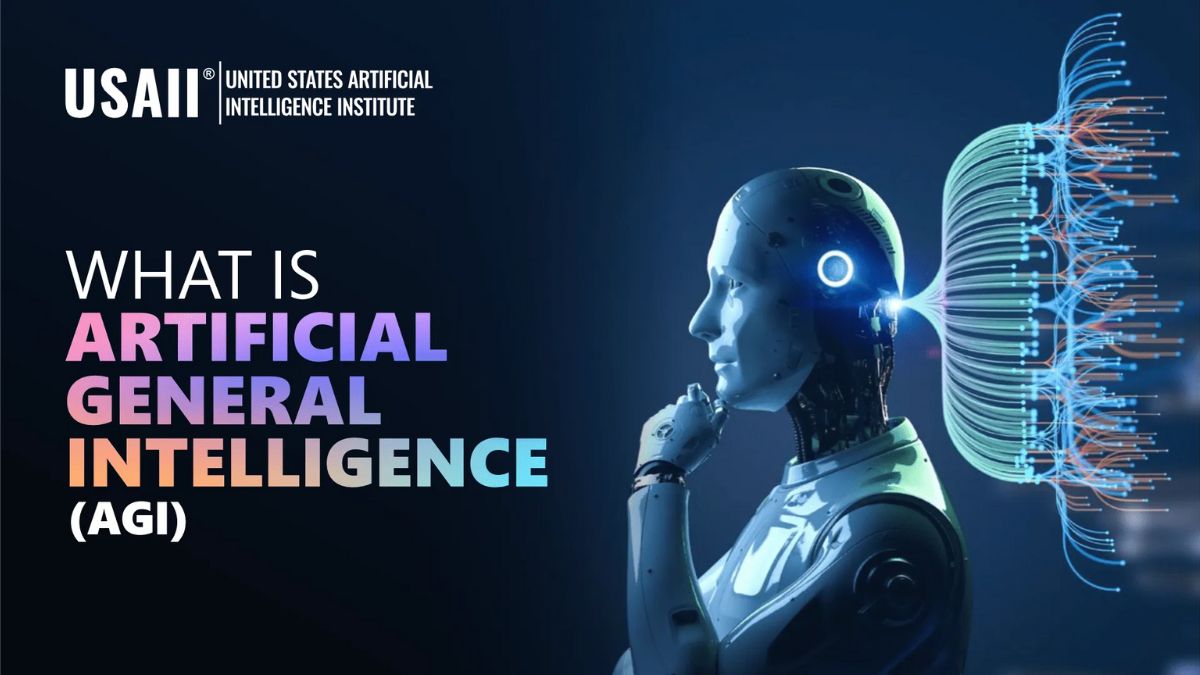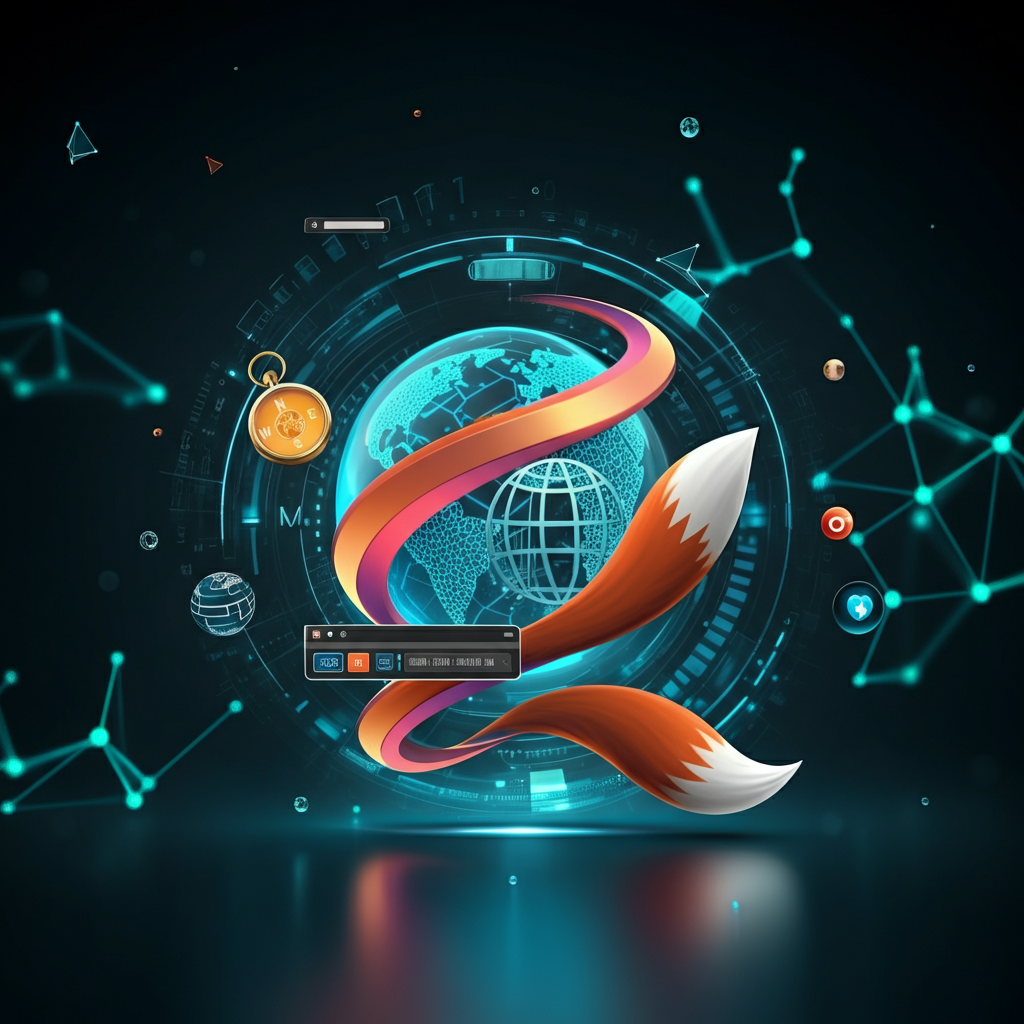Artificial general intelligence (AGI) represents the next frontier in the development of artificial intelligence (AI). While narrow AI—like chatbots, recommendation systems, or language translators—has made significant advancements in recent years, AGI remains a more complex and ambitious goal. Unlike narrow AI, AGI aspires to possess human-like intelligence, allowing it to perform a wide range of tasks, adapt to new environments, and solve problems without being specifically programmed.
But what exactly is AGI, how does it differ from current AI systems, and why should we care about its potential? This blog delves into these questions, exploring the benefits, challenges, and possible societal impacts of AGI. By the end, you’ll have a clearer picture of what AGI means for the future of technology—and humanity.
What Is Artificial General Intelligence?
Artificial general intelligence (AGI) refers to a type of AI that can learn and understand any intellectual task that a human is capable of performing. Unlike current AI, which is task-specific, AGI would have the capacity to reason, solve unfamiliar problems, and even apply knowledge across various domains.
Key Features of AGI:
- Versatility: AGI wouldn’t be limited to predefined tasks. It could switch between areas of expertise—such as analyzing medical diagnoses, composing music, and developing engineering solutions—with minimal human intervention.
- Autonomy: An AGI system could generate new strategies and ideas on its own, adapting to unfamiliar situations without explicit training.
- Human-Like Understanding: AGI strives for the ability to mimic human-level reasoning, perception, decision-making, and emotional understanding.
While the concept has fueled optimism among technologists, achieving AGI raises both significant opportunities and ethical dilemmas.
How AGI Differs from Narrow AI
The AI systems we frequently encounter today—recommendation algorithms (e.g., Netflix or Amazon), image recognition software, and even advanced chatbots—fall under the umbrella of narrow AI. These systems excel at specific tasks for which they have been trained, but they lack the ability to generalize their skills to other areas.
For example:
- A facial recognition model may identify people in photos with high accuracy but cannot simultaneously calculate mathematical predictions or synthesize new knowledge beyond its training data.
- An AI like OpenAI’s ChatGPT can generate human-like text, but its understanding of context is limited to the data it was trained on and cannot rival human reasoning. It cannot actively “learn” beyond its programmed parameters.
AGI, in contrast, would integrate skills, logic, and adaptability across various domains, operating more akin to human intelligence.
Example Comparison:
|
Narrow AI |
Artificial General Intelligence (AGI) |
|---|---|
|
Designed for singular tasks (e.g., customer support) |
Can perform any intellectual task a human can |
|
Cannot transfer knowledge between tasks |
Transfers skills and applies knowledge universally |
|
Lacks adaptability for new, undefined problems |
Can solve unanticipated problems autonomously |
The Benefits of AGI
The development of AGI has immense potential for transforming industries and solving complex global challenges. Below are just a few of the advantages it could bring.
1. Revolutionizing Healthcare
AGI could simultaneously analyze medical histories, conduct advanced research, and provide personalized treatment recommendations. For instance, it could independently develop new drugs, diagnose rare diseases, or perform intricate surgical tasks with precision.
2. Advancing Environmental Solutions
From combating climate change to conserving biodiversity, AGI could analyze vast datasets and model solutions far beyond human capacity. Its continuous ability to simulate environmental scenarios could significantly accelerate sustainable development.
3. Redefining Education
Customizable AI tutors powered by Artificial general intelligence (AGI) AGI could adapt to individual learning styles and needs, ensuring that students anywhere in the world have access to high-quality education.
4. Boosting Economic Growth
By automating repetitive labor while simultaneously innovating new business models, AGI could drive unprecedented productivity gains. With AGI, businesses could become more efficient and allocate human resources toward more creative pursuits.
The Challenges of AGI Development
While the promise of Artificial general intelligence (AGI) AGI is exciting, its development comes with major obstacles—technical, ethical, and philosophical—that must be addressed.
1. Technical Complexity
Building Artificial general intelligence (AGI) AGI requires overcoming challenges like integrating multiple cognitive functions, modeling human-like reasoning, and ensuring the system learns accurately over time. Current AI frameworks are task-specific, and creating architectures that underpin AGI will take major leaps in computation and design.
2. Ethical Concerns
Just like any powerful tool, AGI could potentially be misused if deployed recklessly. Scenarios such as AGI being weaponized or used for invasive surveillance are serious considerations.
- Bias and Fairness: How do we ensure AGI remains impartial and doesn’t perpetuate harmful social biases?
- Ownership: Who will control AGI systems, and how can their power be equitably distributed?
3. Unemployment and Economic Disparities
The automation potential of AGI could disrupt labor markets on a massive scale, displacing millions of jobs. While it might create new roles in return, this transition period could widen economic inequalities.
4. Control and Alignment
Perhaps the most significant challenge is ensuring AGI aligns completely with human values and ethics. Misaligned AGI—whether through technical error, misunderstanding, or intentional subversion—could have catastrophic consequences.
Social Implications and the Road Ahead
The rise of AGI will not only reshape industries but also provoke deeper questions about society, culture, and humanity itself:
- The Meaning of Work: How will humans define their purpose if AGI can perform most professional tasks better than we can?
- Interpersonal Relationships: Could humans form meaningful connections with AGI systems, and if so, how would that alter social dynamics?
- Global Governance: International cooperation will be crucial in regulating AGI development. Failure to establish oversight could result in a technological “arms race.”
Current Progress and Predictions
Leading organizations like OpenAI, DeepMind, and IBM are investing heavily in AGI research. While predictions vary, some experts believe we could see AGI as early as 2040, while others caution such goals may still be speculative.
Preparing for an AGI-Driven Future
To ensure AGI benefits society, proactive planning and collaboration from all stakeholders—researchers, businesses, policymakers, and the global community—are essential. Here are some actionable steps organizations and individuals can take:
- Invest in AI literacy programs to prepare the workforce for an automated future.
- Implement ethical frameworks and transparency in AI development.
- Advocate for responsible policies that balance innovation with societal protections.
Final Thoughts
Artificial general intelligence represents not just a technological milestone but a turning point in human history. The potential to amplify human problem-solving capabilities, address global crises, and redefine industries is immense. However, as we strive for this ambitious goal, it’s critical to adopt a thoughtful approach that prioritizes ethics, fairness, and sustainability.
AGI isn’t just about creating machines that think—it’s about enhancing humanity’s collective intelligence. By working together, we can ensure a brighter, more equitable future powered by AGI.
Collaborative Efforts in AGI Development
The development of AGI is not merely a technological endeavor—it requires the collaboration of diverse stakeholders across multiple domains. Scientists, philosophers, policymakers, and ethicists must work in tandem to ensure that the growth of AGI aligns with societal needs and values. Open collaboration and knowledge-sharing can prevent monopolies or asymmetrical access, fostering a more equitable distribution of its benefits.
One proposed solution is the establishment of global standards and regulatory frameworks that guide AGI research and deployment. These frameworks could involve ethical guidelines, transparency requirements, and accountability structures. By fostering an environment of openness and mutual trust, nations and organizations could leverage AGI’s capabilities while minimizing risks.
Additionally, public awareness about AGI is essential. Governments and institutions need to engage in transparent dialogues with citizens, educating them about AGI’s potential impact on society. This will help address fears and misconceptions while preparing society for the changes AGI might bring.
Ultimately, the development of AGI should be approached as a collective human endeavor. Only by working together can we ensure this groundbreaking technology serves not just a select few, but the entire global community.
The Role of Education in an AGI Future
Education will play a pivotal role in preparing society for an AGI-driven future. As AGI reshapes industries and job markets, the traditional education system must evolve to meet new demands. This includes focusing on skills that complement AGI’s capabilities, such as creative problem-solving, emotional intelligence, and interdisciplinary thinking.
Introducing AI literacy at an early age will be essential to ensure the next generation understands both the opportunities and risks associated with AGI. Curricula should include comprehensive lessons on the ethical, social, and technological aspects of AI to cultivate informed citizens who can participate meaningfully in discussions about its development and regulation.
Beyond technical knowledge, fostering lifelong learning will be critical as industries and professions undergo rapid transformation. Governments and businesses should collaborate to provide accessible reskilling and upskilling programs, enabling workers to adapt to new roles in an automated economy. By prioritizing education that empowers individuals, we can mitigate the disruptive effects of AGI and maximize its potential to benefit humanity.
The Importance of Diversity in AGI Development
Ensuring diversity in the teams developing AGI is another crucial factor in shaping its outcomes. Diverse perspectives help identify blind spots, challenge biases, and promote fairness in decision-making processes. Without representation across gender, ethnicity, socioeconomic status, and geographic regions, AGI systems risk being tailored to the interests of a narrow group, perpetuating existing inequalities.
To achieve inclusivity, organizations must actively promote diversity in hiring practices and support underrepresented groups in STEM fields. Sharing access to research tools and resources with institutions in developing countries can also bridge the global divide in AGI development. A truly inclusive approach will ensure AGI reflects humanity’s collective diversity rather than reinforcing existing cultural or economic imbalances.
Ethical Challenges in AGI Deployment
The deployment of AGI poses a myriad of ethical challenges that demand careful consideration and proactive solutions. Among the most pressing concerns is the potential misuse of AGI systems. These systems, if exploited by malicious actors, could be weaponized or used to undermine democratic institutions, spread disinformation, or infringe upon personal freedoms. To prevent such outcomes, robust security measures and strict regulatory oversight must accompany any AGI deployment.
Another critical issue relates to accountability. Unlike traditional software, AGI systems are designed to make autonomous decisions, which raises the question of who should be held responsible for their actions. Establishing clear accountability frameworks will be vital in addressing liability concerns, especially in scenarios where AGI systems cause unintentional harm.
The ethical implications of AGI on privacy and surveillance also cannot be overlooked. The integration of AGI into various sectors, such as law enforcement and marketing, has the potential to greatly enhance data analysis. However, it also risks eroding individuals’ privacy if safeguards are not implemented. Ethical standards and transparency in how AGI systems collect, store, and use data will be key to preserving public trust.
Finally, the risk of perpetuating biases within AGI systems highlights a significant ethical dilemma. If left unchecked, AGI could inherit and amplify the biases present in training data, leading to discriminatory outcomes. Developing rigorous auditing mechanisms and prioritizing fairness during the design and training phases can help mitigate these risks and ensure ethical deployment.
Navigating these ethical challenges will require a collaborative effort involving researchers, policymakers, and ethicists. By addressing potential pitfalls proactively, society can harness AGI as a force for good while minimizing its risks.








